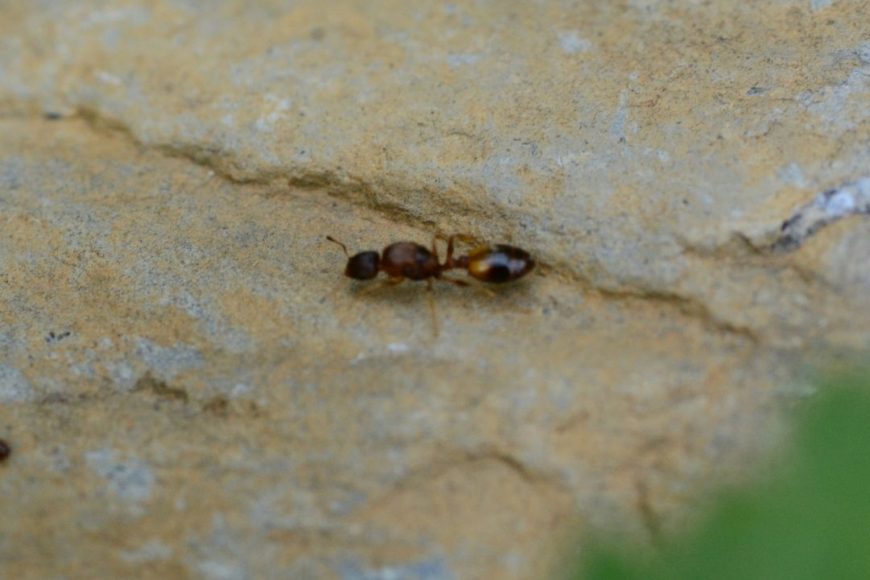- By Caleb
- In ANTS, RESIDENTIAL
- Tags Ant Control, Ant Pest Control
Fill out the form below and a Cypress Creek representative will be in touch with you about your pest control needs.

Pharaoh ant infestations are one of the more serious ant infestations that you can have in the home. Not only do these ants grow their colonies very fast, the colonies are also hard to remove, and the ants are capable of spreading dysentery and salmonellosis to the food that they come into contact with. Let’s take a look at this species and some essential information that you should know about it.
How pharaoh ant infestations start
Pharaoh ants will usually enter the home looking for food. However, if a scouting worker only finds some crumbs or spills, the infestation will be temporary. It will get its buddies, they will collect what food they can find, and then leave. For a colony to start in the home or near it, the ants will need to have access to persistent food sources, the right humidity levels, and a protective habitat site. In the home, they will usually set up in pipe chases, walls, cabinet voids, refrigerator insulation, and behind baseboards.
A colony has multiple queens, which adds to the difficulty of the control process, and if the main colony is disturbed, the ants will split off and create new colonies in the vicinity. It usually takes about 38 days for a pharaoh ant egg to hatch, and workers live for about 10 weeks, with a queen living anywhere from four to 12 months. Unlike other ant species, pharaoh ant colonies will start through a process known as budding, where a group of workers and queen migrate to a new location.
What are the signs that you have a pharaoh ant infestation?
The best way to detect a pharaoh ant infestation is to see the ants out in the open. They will be very small, about 1/16th of an inch, and their bodies are light yellow, with red and black markings on their abdomen. Outside of their presence, they will leave very few outward signs.
How to remove a pharaoh ant infestation
Pharaoh ant infestation can be difficult to remove, which is why it’s recommended that you hire a pro to do it. Like with any social insect, if you do not manage to completely destroy the colony, the ants will simply reproduce and replenish their numbers. If you have a pharaoh ant infestation that needs to be removed, give us a call today and we will set up an appointment.